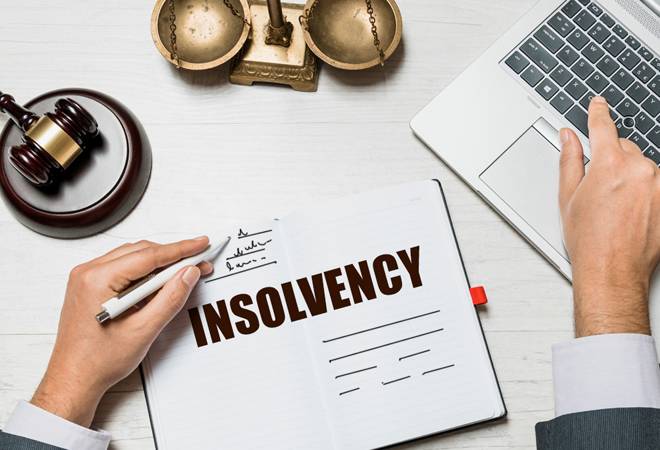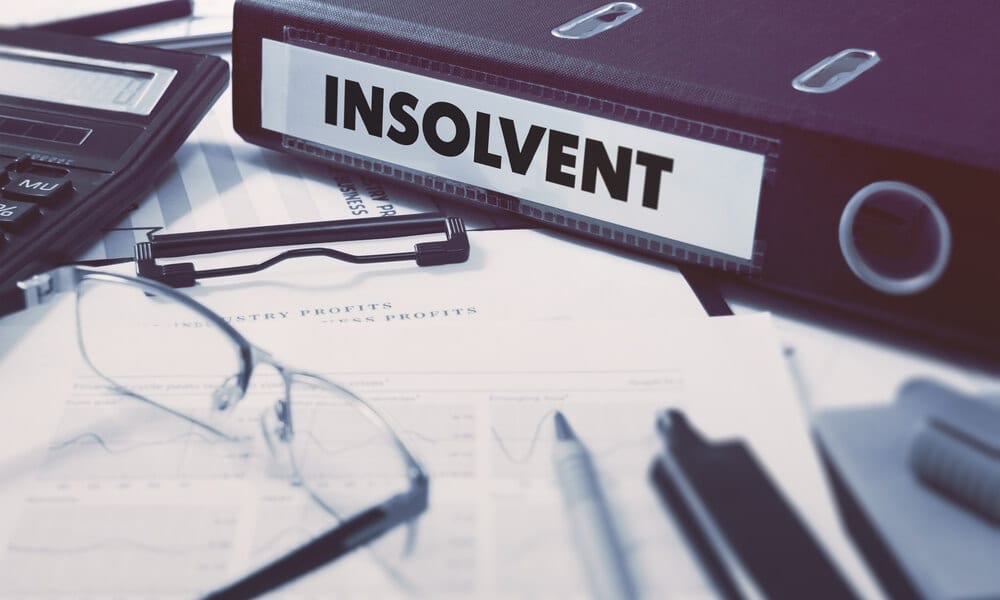Corporate Insolvency Resolution Process (CIRP)
CIRP is the process of resolving the corporate insolvency of a corporate debtor in accordance with the provisions of the Code. A corporate debtor means a company or Limited Liability Partnership (‘LLP’) that owes a debt to its creditors. The trigger for initiating the CIRP is the ‘DEFAULT’ by the corporate debtor. The process of insolvency of corporate debtors under the code applies where the minimum default amount is INR 1 crore.

Who Can Initiate Corporate Insolvency Resolution Process?
If any Corporate Debtor commits a default, Corporate Insolvency Resolution can be initiated by filing an application before the Adjudicating Authority in the manner as provided under Chapter II of Part II of the Code.
CIRP may be initiated by either:
- A Financial Creditor (FC) under Section 7
- an Operational Creditor (OC) under Section 9
- a Corporate Debtor (CD) under Section 10 of the Code
Process of Corporate Insolvency Resolution
STAGE I: INITIATION OF CIRP
The CIRP of a CD commences with an order from the Adjudicating Authority (AA), admitting an application to initiate the CIRP of the CD filed by a financial creditor or an Operational Creditor, or the corporate applicant. The date of this order becomes the insolvency commencement date (ICD).
STAGE II: Declaration of Moratorium and Public Announcement
- Declaring a moratorium for prohibiting certain actions and transactions.
- Causing a public announcement of initiating the CIRP and call for the submission of claims.
- Appointing of an Insolvency Professional to act as an interim resolution professional
- Prohibiting continuation or institution of suits or proceedings against the corporate debtor.
- Prohibiting Encumbering, transferring, disposing of or alienating by the corporate debtor of its assets or beneficial interest or legal right.
- Prohibiting any action to recover, foreclose or enforce any security interest created by the corporate debtor relating to its property, including any action under the Securitisation and Reconstruction of Financial Assets and Enforcement of Security Interest Act, 2002.
- Recovery of any property by a lessor or owner, where the property is in possession or occupied by the corporate debtor.

STAGE III: CONSTITUTION OF COMMITTEE
- Collation, verification of the claims, constitution of the Committee of Creditors, and thereby preparation of the list of creditors.
- Filing of report certifying the constitution of the Committee of Creditors and list of creditors to the Adjudicating Authority.
- Holding the first meeting of the Committee of Creditors within 7 (seven) days of filing the report certifying the constitution of the committee of creditors.
- The committee shall fix the expenses to be incurred on or by the IRP and the expenses shall constitute insolvency resolution process costs.
- The Committee of Creditors is the decision-making body of the Corporate Debtor, for the very reason that it is the interest of these creditors which is at stake. Actions taken by the IRP/ RP are to be ratified by the members of the Committee of Creditors.
STAGE IV: APPOINTMENT OF RESOLUTION PROFESSIONAL
The IRP so appointed may or may not be appointed as the Resolution Professional (RP), and the same is decided upon by the Committee of Creditors in its first meeting.
When the committee of creditors decide to continue with the interim resolution professional appointed by NCLT as the resolution professional, it should communicate its decisions to NCLT, the interim resolution professional and the corporate debtor.
The resolution professional will conduct the entire CIRP and manage and control the operations of the corporate debtor during the CIRP.
STAGE V: POWERS AND DUTIES OF THE IRP/RP
- The IRP or the RP may appoint any professional, in addition to registered valuers to assist him in the discharge of his duties in the conduct of the corporate insolvency resolution process.
- The RP may sell an unencumbered asset(s) of the corporate debtor, other than in the ordinary course of business if he believes that such a sale is necessary for a better realization of value under the facts and circumstances of the case. However, the book value of all the assets sold in aggregate shall not exceed ten percent of the total claims admitted by the IRP.
- The resolution professional shall form an opinion on whether the corporate debtor has been subjected to any transaction covered under sections 43, 45, 50, or 66 of the Code.

STAGE VI: INITIATION OF EXPRESSION OF INTEREST PROCESS FOR SUBMISSION OF RESOLUTION PLAN
The resolution professional shall publish brief particulars of the invitation for expression of interest in Form G. The public announcement states that the corporate debtor is undergoing an insolvency action and that all interested candidates or bidders are asked to submit a resolution plan that could be chosen.
The Resolution Professional shall check the eligibility of all the prospective resolution applicants and conduct due diligence.
The Prospective Resolution Applicant shall submit the resolution plan within the due date prescribed in Form G.
The plan so proposed must compulsorily deal with payment of the CIRP costs in priority, payment to operational creditors, and management of affairs of the corporate debtor on implementation of such plan. There are also other requirements laid down in provisions of the Code and regulations made there under which are required to be complied with.
RP will check whether the plan submitted by Resolution Applicant (RA) meets the basic criteria of the requirement of the Code.
The resolution professional shall submit to the committee all resolution plans which comply with the requirements of the Code and regulations made there under.
Thereafter, the committee shall evaluate all the plans, record its deliberations on the feasibility and viability of each resolution plan, and vote on all such resolution plans simultaneously.
STAGE VII: APPROVAL OF RESOLUTION PLAN
Where the resolution plan is approved by the members of the Committee of Creditors with 66% of votes, the RP shall file an application before the Adjudicating Authority for approval of the plan. Following this, Adjudicating Authority may, upon its discretion, accept or reject the same.
The resolution plan is implemented and becomes legally operative on the corporate debtor and all parties if the NCLT authorizes it.
The Tribunal may order the corporate debtor’s liquidation if the NCLT does not approve the resolution plan or it doesn’t receive resolution plan before the expiry of CIRP period.
How S.K. Agrawal & Co. Helps in Corporate Insolvency Resolution Process?
- Providing Insolvency Professional who will act as Interim resolution Professional (IRP)/Resolution Professional (RP).
- Providing support services in Verification of Claim to IRP/RP.
- Providing Front End Team for Taking Over Control and Custody of Corporate Debtor.

- Providing support services in drafting of Information Memorandum.
- Providing support services in drafting of Resolution Plan.
- Represent in COC meeting on behalf of Financial Creditor (FC), Operational Creditor (OC) and Corporate Debtor (CD).
- Providing legal support services for draft progress reports and other documents required to be filed before the Adjudicating Authority or any other authority
- Represent before Adjudicating Authority or any other court, tribunal or authority on behalf of IRP/RP, Financial Creditor (FC), Operational Creditor (OC) and Corporate Debtor (CD).
Service Area
We provide strategic and qualitative advisory services to all our clients from domestic to international organizations, small, medium and large sized enterprises, assisting them with their incorporation and quality management services so they can establish their business successfully globally. To help them deal with their tax issues, financial and legal requirements we provide all support for post incorporation services, so they are able to run their business seamlessly. We are based at New Delhi and Faridabad, but our wings are spread to serve clients across the globe. Customer Satisfaction, Quality of Service and our Turnaround time are the drivers of our enthusiasm and success. We are continuously serving our client at Faridabad, Delhi, Gurgaon (Gurugram), Noida (Gautam Budh Nagar), Sonipat, Panipat, Palwal, Jind, Karnal, Meerut, Kolkata, Mumbai (Bombay), Pune, Bangalore, Nasik, Aurangabad, Nagpur, Ludhiana, Amritsar, Mohali, Hyderabad, Kanpur, Agra ,Rudrapur, Haridwar, Jamshedpur, and many other Industrial Areas.
